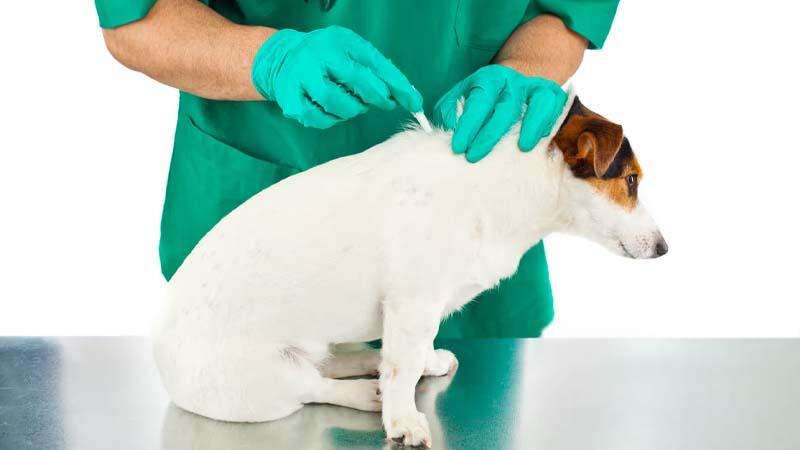A leading scientist has accused vets of “profiteering” by routinely prescribing preventive flea treatments for cats and dogs, despite growing evidence that these chemicals are harming wildlife.
Currently, pet owners in the UK are advised to administer flea treatments every couple of months, even if their pets show no signs of infestation. However, these products contain potent insecticides that can transfer from pet fur—and even their owners’ hands—into waterways. A recent study also found that contaminated pet fur used in bird nests is causing harm to young songbirds.
Concerns over biodiversity loss are increasing, particularly regarding chemicals such as imidacloprid and fipronil. One monthly flea treatment for a large dog contains enough imidacloprid to kill 25 million bees.
Professor Dave Goulson, a biologist at the University of Sussex, where the songbird study took place, emphasized the need to end routine flea treatment unless necessary. “The environmental contamination caused by these chemicals is unacceptable,” he said. “A sensible first step is to stop treating pets that don’t have fleas—after all, we don’t give our children lice treatment unless they actually have lice. The practice of promoting monthly prophylactic treatment is purely for profit.”
While the UK government is planning to ban imidacloprid in agriculture, there are no current plans to restrict its use in pet care.
Alternatives to chemical treatments include using flea combs and regularly washing pet bedding. Some pet owners also feel pressured by vets to sign up for monthly flea and worm treatment plans. Helen Hedges, a nurse and dog owner, shared her frustration: “I felt patronized for refusing these subscriptions. I wouldn’t apply chemicals to my child every month if they didn’t need them—why should I do it to my dogs?” She noted that getting flea treatment outside of a subscription can be expensive, as regulations prevent vets from prescribing it unless a pet has been seen in the last six months.
The British Veterinary Association (BVA) has called for further research into the environmental impact of these pesticides and urged vets to prescribe them responsibly.
BVA president Elizabeth Mullineaux stated, “Parasiticides are essential for protecting animal health, but they should be used based on risk rather than as a blanket approach. We encourage pet owners to discuss their animals’ specific needs with their vet and to use and dispose of these treatments responsibly to reduce environmental harm.”








.svg)


